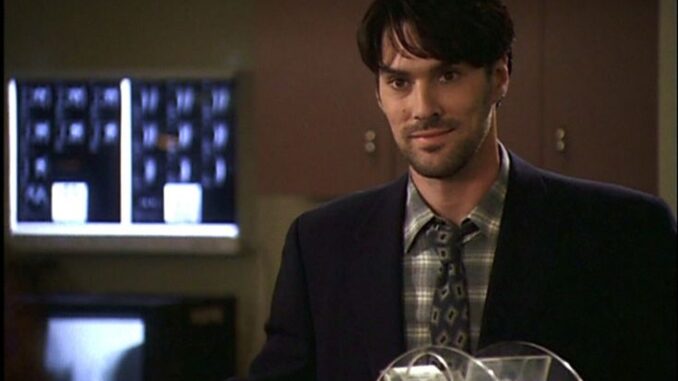
Early Life and Education
Born in Charleston, South Carolina, Gibson’s passion for acting sparked young. By age 9, he was already performing in children’s theater. He later studied at the prestigious Juilliard School, a breeding ground for stage legends.
Career Beyond the Stage
You likely know him from:
-
Criminal Minds
-
Dharma & Greg
-
Guest appearances on classics like Chicago Hope
But behind the camera-ready face was a trained stage actor with deep Broadway roots.

Chicago the Musical: An Icon in Its Own Right
What’s Chicago All About?
For those living under a rock, Chicago is a Tony Award-winning musical known for its sizzling jazz, scandalous storyline, and sensational choreography. It’s set in the roaring 1920s and follows Roxie Hart and Velma Kelly as they navigate fame, crime, and survival.
Why Chicago Still Matters
Even decades later, Chicago is still:
-
One of Broadway’s longest-running shows
-
Known for attracting celebrity talent
-
Revered for its razzmatazz, jazz hands, and courtroom drama
Thomas Gibson’s Role in the Chicago Cast
The Character He Played
While Gibson wasn’t the headline act like Roxie or Velma, his performance stood out. He played a supporting character that demanded charisma and timing—both of which he had in spades.
Broadway Buzz
Critics at the time praised Gibson’s commanding stage presence, even though his stint was brief. It was a stepping stone that led directly to his move into television stardom.
From Stage to Screen: The Career Leap
How Chicago Helped Gibson Transition to TV
There’s a special kind of discipline Broadway actors bring to TV—and Gibson had it. His time in Chicago taught him:
-
Timing and rhythm
-
Audience connection
-
Physicality in performance
All of which translated seamlessly into his iconic TV roles.
The Real Difference: Live vs. Camera
Performing live is like walking a tightrope. No cuts. No second takes. That intensity prepared Gibson for the pressure of long-running TV shows.

Fun Facts About Thomas Gibson’s Stage Career
1. He Performed With Big Broadway Names
Gibson shared the stage with some of Broadway’s most respected actors, gaining invaluable experience and credibility.
2. He Returned to Theater Multiple Times
Even after becoming a TV star, Gibson returned to his roots—because once you’ve done live theater, it’s in your blood.
3. He’s a Trained Shakespearean Actor
Not just jazz hands! Gibson has performed Shakespearean roles like Hamlet and Macbeth—serious range, right?
Why This Matters to Fans
Understanding His Versatility
Knowing Gibson’s stage background gives a whole new layer to his screen performances. That emotional depth? That dramatic pause? It’s not just good acting—it’s trained stagecraft.
Broadway Roots in a TV World
A lot of great TV actors started on Broadway—Patrick Stewart, Bryan Cranston, and yes, Thomas Gibson. The stage molds legends.
The Legacy of the Chicago Cast
What Made This Era Special
The revival cast during Gibson’s time had a rawness that modern shows sometimes lack. They were gritty, real, and unafraid to take risks.
Why People Still Talk About It
It was a moment when Broadway and pop culture collided. And Thomas Gibson? He was right there, soaking it all in.

Chicago’s Ongoing Impact on Pop Culture
Movies, Revivals, and References
You’ve probably seen the 2002 film starring Renée Zellweger and Catherine Zeta-Jones. But the stage show keeps thriving, thanks to its ability to attract talent from every corner of entertainment.
TV Crossovers and Cameos
Actors like Gibson bring theater credibility to TV, and many return the favor with Broadway cameos. It’s a beautiful, creative loop.
Thomas Gibson’s Most Underrated Talent
Did You Know He’s Also a Director?
Yep. Gibson directed episodes of Criminal Minds, bringing that theatrical sensibility to every scene.
And a Passion for the Arts
He supports arts education and has spoken about the value of keeping theater alive in schools. Respect.
Final Thoughts: A Legacy Worth Revisiting
Thomas Gibson’s time in Chicago may not be what he’s most famous for—but it’s a vital chapter in his artistic journey. It gave him tools, confidence, and that magnetic stage energy we see every time he’s on screen.
If you’re a fan of his work, dig deeper. Watch old stage clips if you can find them. Appreciate the artistry that goes beyond the camera lens.
